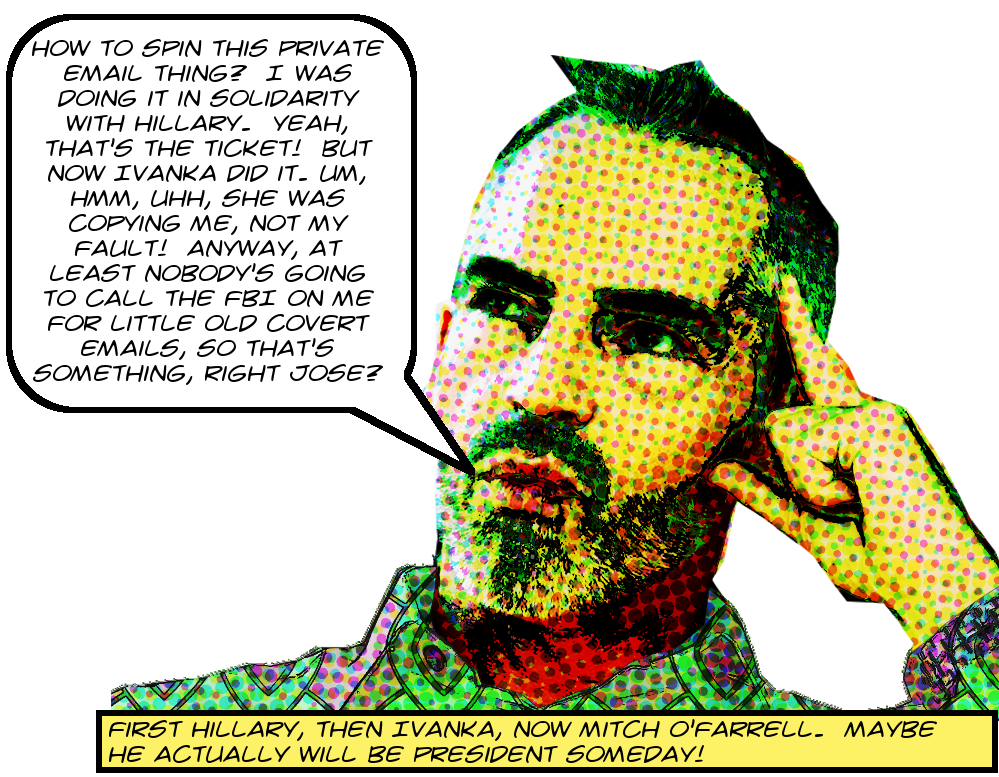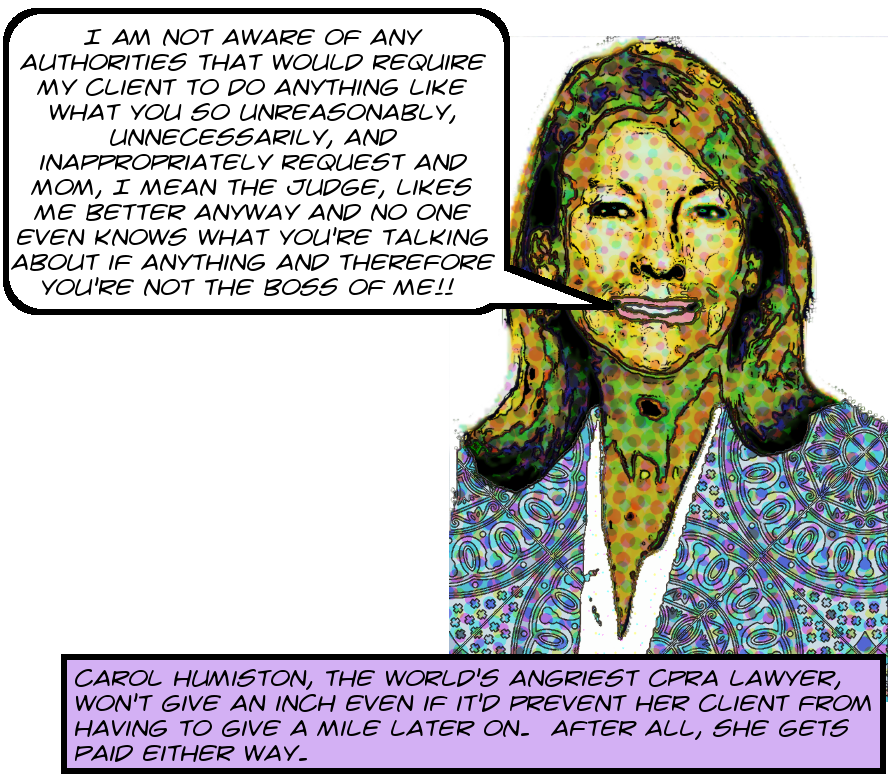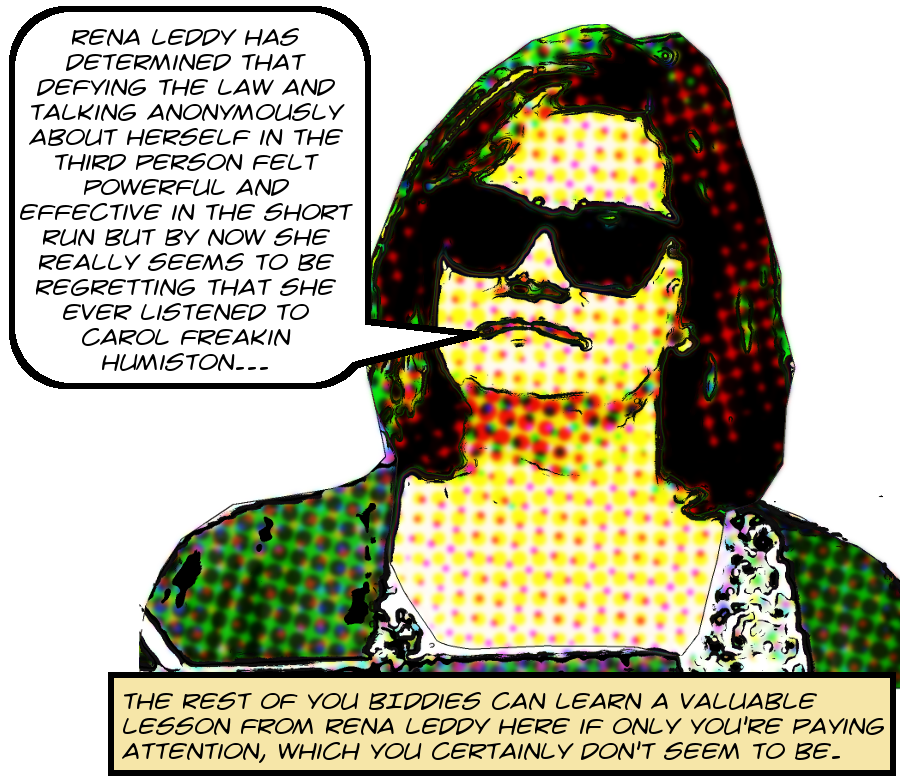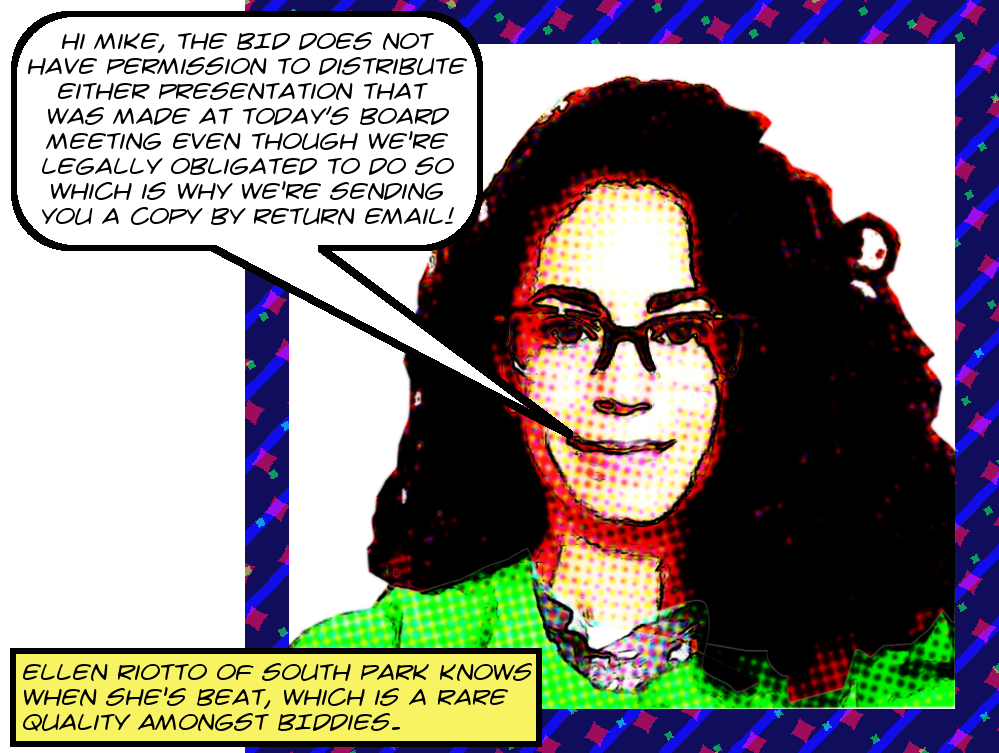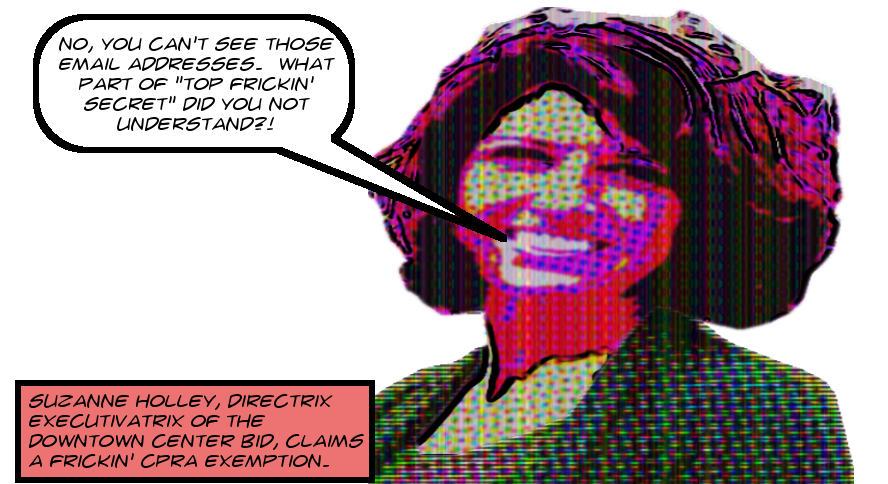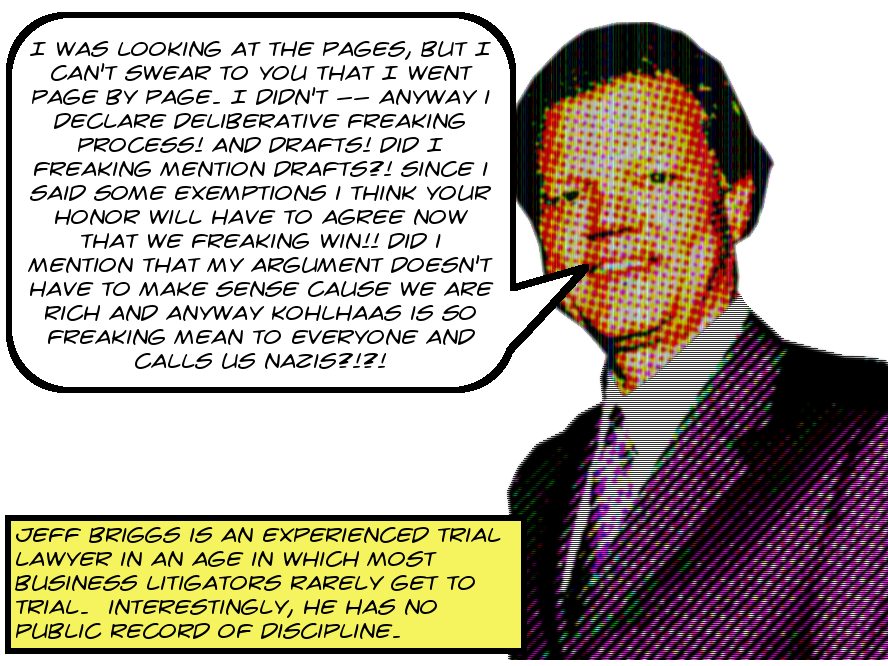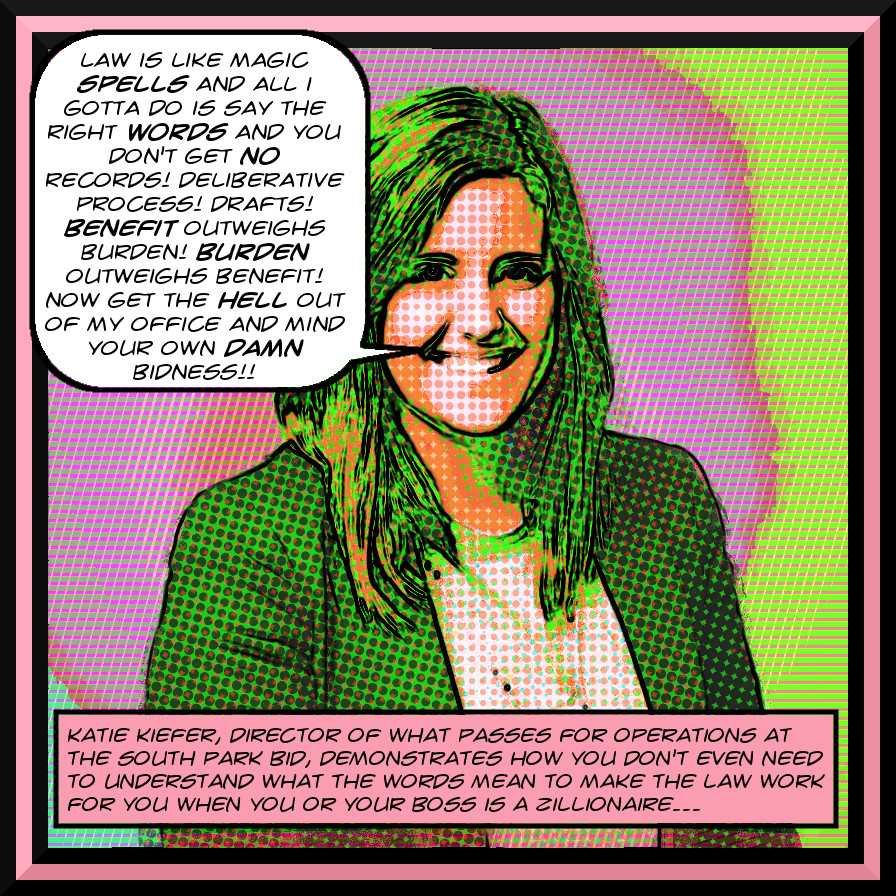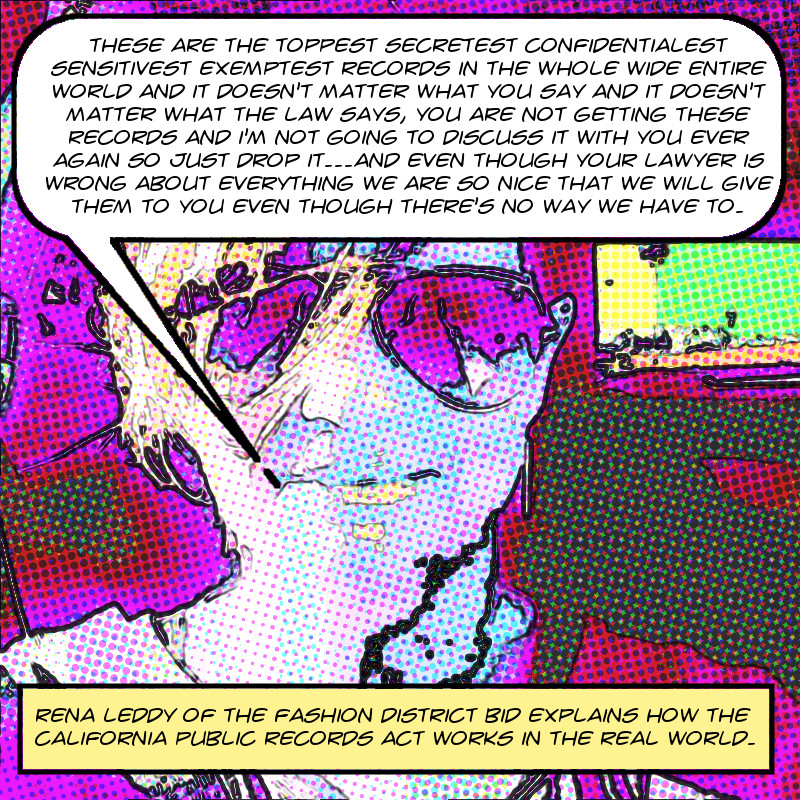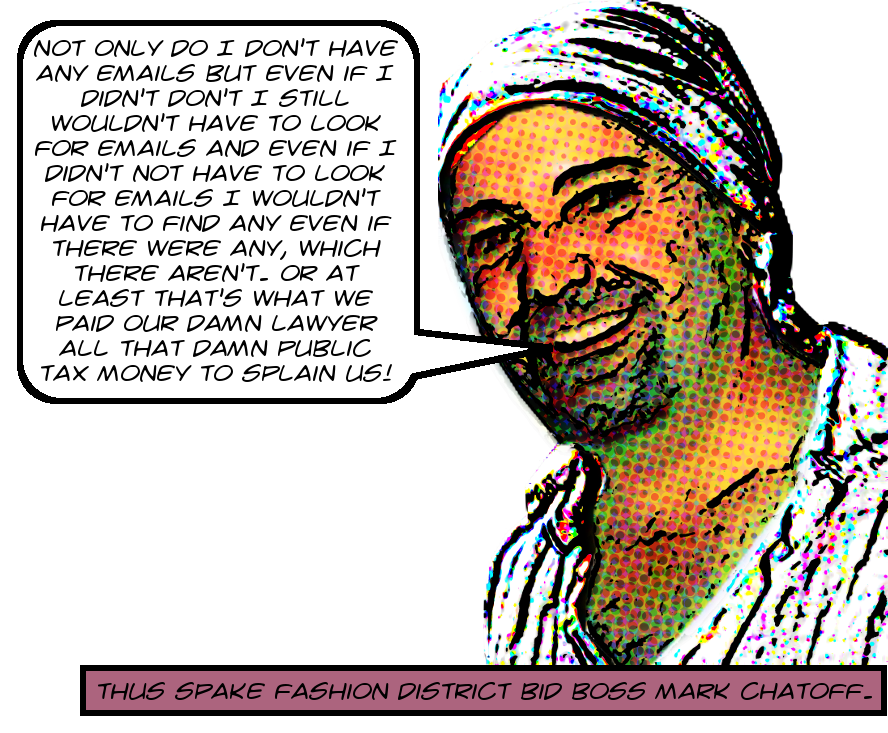 It’s been a while since I wrote about the lawsuit that I was forced to file in August 2018 by the unhinged intransigence of the Fashion District BID, pursued by them in line with the unhinged intransigence of their soon-to-be-disbarred attorney, the world’s angriest CPRA lawyer, Ms. Carol Ann Humiston, in order to enforce my rights to read their damn emails. But time rolls on and the trial, scheduled for June 26, 2019 at 9:30 a.m. in Department 86 of the Stanley Mosk Courthouse, is rapidly approaching.
It’s been a while since I wrote about the lawsuit that I was forced to file in August 2018 by the unhinged intransigence of the Fashion District BID, pursued by them in line with the unhinged intransigence of their soon-to-be-disbarred attorney, the world’s angriest CPRA lawyer, Ms. Carol Ann Humiston, in order to enforce my rights to read their damn emails. But time rolls on and the trial, scheduled for June 26, 2019 at 9:30 a.m. in Department 86 of the Stanley Mosk Courthouse, is rapidly approaching.
Thus did my attorneys, Abenicio Cisneros and Karl Olson, file the trial brief with the court on Friday. The arguments are overwhelmingly powerful, and you can read substantial excerpts after the break. If I were the Fashion District after reading this I’d be ready to settle up and settle up quick. But they’re clearly on some kind of a mission with an axe to grind and a point to prove and I certainly don’t expect them to start acting sensible at this point. After all, it’s not their own money they’re squandering on Ms. Humiston’s exorbitant fees.1
As I said, you can read the specifics in the excerpts below, but there are two main general issues at stake. First is the fact that the BID relies heavily on the so-called catch-all exemption to the CPRA, found at section 6255(a), which allows agencies to withhold records when they can show “that on the facts of the particular case the public interest served by not disclosing the record clearly outweighs the public interest served by disclosure of the record.” The key thing here is that they have to make a showing of public interest in withholding the record.
This is hard enough to do in general, and the BID hasn’t even made an attempt, but our argument is that in the City of Los Angeles such a showing is even more difficult to pull off because (a) the BID is deeply involved in attempts to influence municipal legislation and (b) the Municipal Lobbying Ordinance at LAMC §48.01 establishes an extraordinarily high public interest in disclosure of information about attempts to influence:
The citizens of the City of Los Angeles have a right to know the identity of interests which attempt to influence decisions of City government, as well as the means employed by those interests.
…
Complete public disclosure of the full range of activities by and financing of lobbyists and those who employ their services is essential to the maintenance of citizen confidence in the integrity of local government.
The argument is essentially that the BID can’t even show that there’s any significant public interest in withholding the records they withheld, but given that the subject of these records concerns the means they employ to attempt to influence municipal decisions, they really especially can’t meet this extra-high local bar.
The other main argument is against some nonsense that the BID just made up in their reply to my petition. Many of the emails they refused to turn over are in the possession of their board members Linda Becker and Mark Chatoff. They wouldn’t even search for these because it’s Carol Humiston’s opinion that board members aren’t subject to the CPRA.
You can read the technical details below, but basically our argument is that the law that makes BIDs subject to the CPRA, which is Streets and Highways Code §36612, explicitly makes the owners’ associations subject. It makes no sense as a matter of law and as of a matter of common sense that a corporation could be subject to the CPRA while its board members were not subject. A corporation only does anything through the actions of the people who run it. And that’s the quick and dirty summary. As I keep saying, read on for the excerpts!
Continue reading Exceedingly Strong Trial Brief Filed In My CPRA Suit Against The Fashion District BID — The BID’s Reply Is Due In 30 Days — Trial Set For June 26, 2019 At 9:30 AM — Department 86 — Stanley Mosk Courthouse


